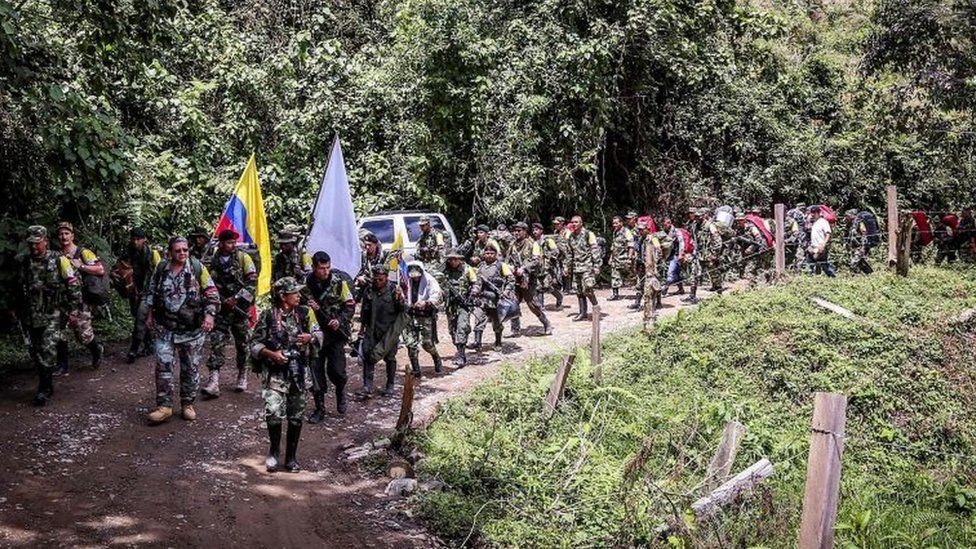Colombian families flee criminal gangs as Farc leaves, says UN
- Published

Families on Colombia's border with Venezuela have been displaced by criminal former paramilitary groups trying to fill the vacuum left by the departure of Farc rebels, the UN says.
Officials said 96 families in the northern region of Norte de Santander had fled their homes.
Some crossed the border into Venezuela and others went to refuges in local Colombian towns, the UN said.
The government has denied any families have been forced across the border.
Foreign Minister Maria Angela Holguin was quoted by local media as saying there was "no certainty of any such displacement" although she conceded that there had been some internal displacement in the Norte de Santander area.
The UN said tension was high in the area and they feared more families could flee.
According to the UN, various groups operate or have operated in the region: the Farc, Colombia's second largest guerrilla group, the ELN, and criminal and former paramilitary groups.
Officials said people are fleeing because illegal armed groups are trying to take over the mining and cocaine trade which had provided the Farc with an income.
Norte de Santander has emerged as the country's main hub for coca cultivation.
Last week peasant farmer organisations in the region around Catatumbo blocked the demobilisation of Farc units saying that their departure would leave them unprotected as the paramilitary groups gathered nearby.
There have also been reports by local communities of an increased presence of criminal groups in at least three other departments: Antioquia, Uraba and Choco.
The Farc - which signed a peace accord with the government last year - has largely left towns and rural areas it occupied and most of the fighters have gathered in 26 concentration zones under the watch of a multinational commission.
The Colombian military is finding it difficult to take control in more isolated regions because of the problems of terrain and lack of access, the government's Peace and Reconciliation Foundation says.
The Farc is expected to hand over its arms by the end of May.
It has agreed to co-operate with investigations into drug trafficking and war crimes.
The armed conflict in Colombia has resulted in more than 220,000 deaths and 40,000 people missing over the past 50 years.
All sides have been accused of war crimes including massacres, torture and rape.
More than six million people have been displaced - the second highest number in the world after Syria.
- Published1 February 2017
- Published8 February 2017
- Published28 January 2017
- Published29 August 2013